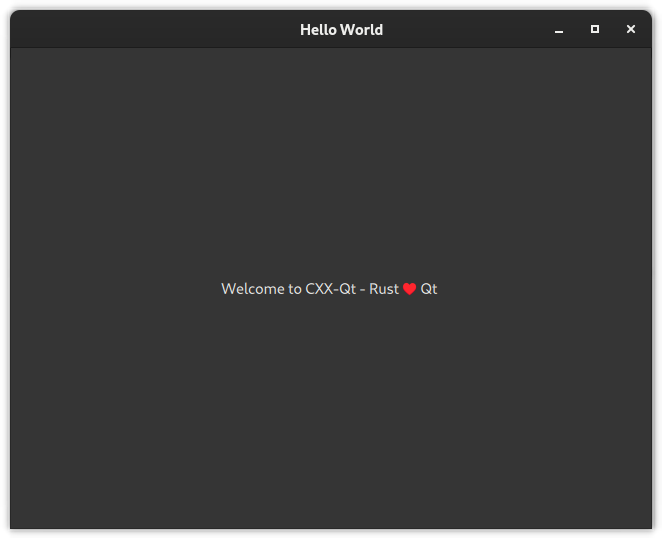Tooling check
Setup check
✅ Fully restart your terminal (not just open a fresh tab).
✅ Let's check that you have installed Rust.
$ rustc --version
rustc 1.73.0 (cc66ad468 2023-10-03)
$ cargo --version
cargo 1.73.0 (9c4383fb5 2023-08-26)
✅ In a work directory, run:
$ cargo new --bin hello-world
$ cd hello-world
$ cargo run --release
Compiling hello-world v0.1.0 (C:\Code\ferrous\hello-world)
Finished release [optimized] target(s) in 0.99s
Running `target\release\hello-world.exe`
Hello, world!
This ensures that the whole toolchain works correctly and finds the system linker. This should work at all times, if it doesn't, immediately ask for a trainer.
Qt specifics
For those interested in following the Qt section of the course, the Rust toolchain must be able to find the Qt installation.
The Rust-Qt bindings (CXX-Qt) need to be able to find your Qt installation.
For this it relies on the qmake executable.
CXX-Qt will try to find qmake in your path.
✅ Confirm that qmake reports a version of Qt 6
$ qmake --version
QMake version 3.1
Using Qt version 6.5.1 in /usr/lib64
If for some reason you do not want to add
qmaketo your path, you can use theQMAKEenvironment variable to tell CXX-Qt where to find the Qt6 qmake executable. e.g.:QMAKE=/usr/bin/qmake6 cargo run
Hello world with Qt
To test that the Rust toolchain can indeed find and link to your Qt installation, you can clone the training
repository and run the qt-hello-world example crate.
✅ Clone the repository
$ git clone https://github.com/ferrous-systems/qt-training-2023
✅ Navigate to the qt-hello-world crate
$ cd qt-training-2023/crates/qt-hello-world/
✅ Test that it works
$ cargo run
If you don't have qmake in your PATH, use:
$ QMAKE=/path/to/your/qmake cargo run
The resulting application should look like this:
